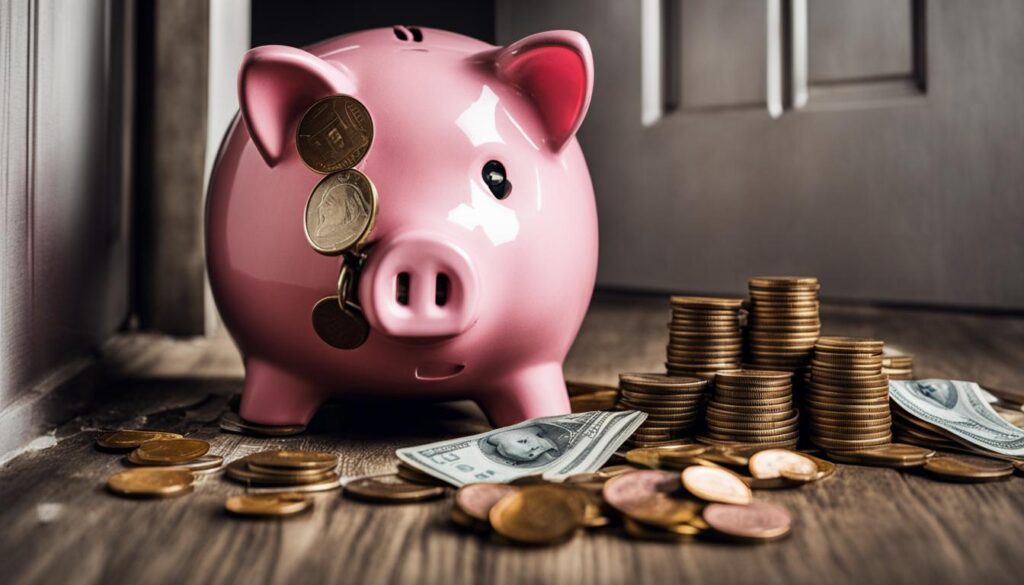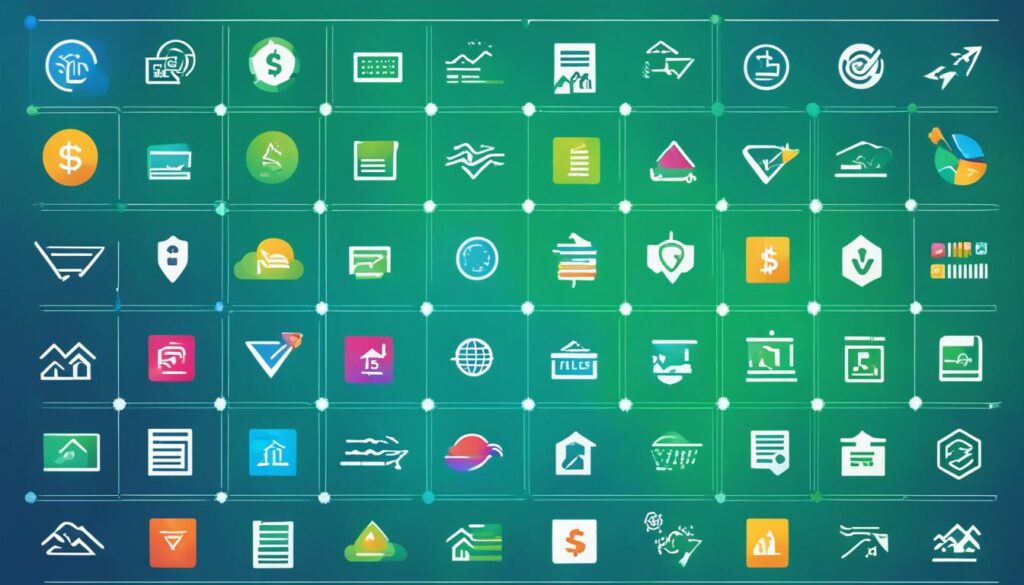Do You Need Collateral For A Personal Loan : When considering a personal loan, one of the key factors to understand is whether or not collateral is required. While most personal loans are unsecured and don’t require collateral, there are situations where lenders may request collateral, especially if you have bad credit or need to borrow a large sum of money.
Collateral is an asset that you offer as security for the loan. In the event that you default on the loan, the lender can seize the collateral to recover their losses. Collateral can take various forms, such as a car, home, savings account, or investments.
In this article, we will explore the differences between secured and unsecured personal loans, examine the types of collateral that can be used, and discuss the pros and cons of each option.
Key Takeaways:Do You Need Collateral For A Personal Loan
- Most personal loans are unsecured and do not require collateral.
- Lenders may request collateral for secured personal loans, especially if you have bad credit or need to borrow a large amount of money.
- Collateral is an asset that you offer as security for the loan, and the lender can seize it if you default on the loan.
- Secured personal loans typically have lower interest rates and longer repayment terms compared to unsecured loans.
- Unsecured personal loans do not require collateral but often have higher interest rates and shorter repayment terms.
Secured Personal Loans: Using Collateral For Your Loan
A secured personal loan is a type of loan that requires collateral to secure the borrowed funds. Collateral refers to any valuable asset that the borrower offers as security to the lender in case of default. Examples of collateral include cars, homes, savings accounts, and investments. If a borrower fails to repay the loan, the lender has the right to seize the collateral.
Secured personal loans often come with lower interest rates compared to unsecured loans. Additionally, these loans may offer longer repayment periods, providing borrowers with more flexibility in managing their finances. However, it’s important to note that there is a risk involved with secured loans: If a borrower is unable to keep up with the loan payments, they may lose their collateral.
Benefits of Secured Personal Loans:
- Lower interest rates compared to unsecured loans
- Longer repayment periods
- Ability to borrow larger amounts
- May help improve credit scores if payments are made on time
Considerations for Secured Personal Loans:
- Potential risk of losing collateral if loan payments are not made
- Some lenders may have restrictions on how the loan funds can be used
- Borrowers with bad credit may face higher interest rates
It’s essential for borrowers to carefully evaluate their financial situation and weigh the advantages and drawbacks of using collateral for a personal loan. By understanding the terms and conditions associated with secured personal loans, individuals can make a more informed decision when selecting a loan option that best suits their needs.
Comparison of Secured and Unsecured Personal Loans:
| Aspect | Secured Personal Loans | Unsecured Personal Loans |
|---|---|---|
| Collateral Requirement | Requires collateral | No collateral required |
| Interest Rates | Typically lower | Typically higher |
| Repayment Period | Longer | Shorter |
| Borrowing Amounts | Potentially higher | Varies based on creditworthiness |
| Credit Requirements | May be more forgiving for borrowers with bad credit | Typically stricter credit requirements |
| Risk of Losing Collateral | Collateral can be seized if loan payments are not made | No risk of losing collateral |
Unsecured Personal Loans: No Collateral Required

An unsecured personal loan is an ideal option for borrowers who do not want to put up collateral. With this type of loan, lenders evaluate your creditworthiness based on factors such as your credit score, credit history, and income, rather than requiring you to pledge assets as security. Unsecured personal loans are typically available to borrowers with good credit or those who have a strong financial profile.
Without the need for collateral, you won’t risk losing valuable assets, such as your car or home, if you default on the loan. However, it’s important to note that unsecured personal loans usually come with higher interest rates and shorter repayment terms compared to secured loans. This is because lenders consider them to be riskier loans since they do not have the protection of collateral.
If you have a strong credit score and a positive credit history, you have a higher chance of qualifying for an unsecured personal loan and obtaining favorable loan terms. Lenders rely on these indicators to assess your creditworthiness and ensure that you are capable of repaying the loan based on your financial situation.
To give you a clearer picture, here is a summary of the advantages and disadvantages of unsecured personal loans:
| Advantages | Disadvantages |
|---|---|
| ✓ No collateral required | ✗ Higher interest rates |
| ✓ No risk of losing assets | ✗ Shorter repayment terms |
| ✓ Available to borrowers with good credit |
While unsecured personal loans provide flexibility and convenience, it’s crucial to weigh the pros and cons carefully before making a borrowing decision. It’s also essential to consider your financial situation, your credit profile, and your ability to handle higher interest rates and shorter repayment terms.
Pros and Cons of Using Collateral on a Loan
Using collateral on a loan has its advantages and disadvantages. Let’s take a closer look at the pros and cons of secured loans with collateral compared to unsecured loans.
Pros of Secured Loans with Collateral:
- Easier Loan Approval: Secured loans that require collateral are generally easier to obtain, even for borrowers with lower credit scores or limited credit history. The collateral provides the lender with added assurance that they can recoup their losses if the borrower defaults on the loan.
- Higher Borrowing Amounts: Collateral allows borrowers to access larger loan amounts compared to unsecured loans. The value of the collateral serves as a security buffer for the lender, enabling them to provide a higher loan limit.
- Lower Interest Rates: Secured loans typically come with lower interest rates compared to unsecured loans. The collateral mitigates the lender’s risk, resulting in more favorable terms for the borrower.
- Potential to Improve Credit Scores: Successfully repaying a secured loan can have a positive impact on credit scores. Timely loan payments demonstrate responsible financial behavior and may contribute to an increase in creditworthiness over time.
Cons of Secured Loans with Collateral:
- Risk of Losing Collateral: The main drawback of secured loans is the risk of losing the collateral if the borrower fails to repay the loan. Defaulting on the loan allows the lender to seize the collateral as a means to recoup their losses.
- Potential Restrictions on Loan Use: Some lenders may impose restrictions on how the loan funds can be used, especially if the collateral is tied to a specific purpose. Borrowers should review the loan agreement and terms carefully to ensure they align with their intended use of the funds.
- Possibility of Higher Interest Rates for Bad Credit Borrowers: While secured loans generally offer lower interest rates, borrowers with bad credit may still face higher rates due to their credit risk profile. It’s important to compare and consider the interest rates and terms offered by different lenders to find the most favorable option.
In contrast, unsecured loans offer the benefit of no collateral required. However, they typically come with higher interest rates and may require a stronger credit profile for approval. Borrowers should carefully weigh the options and evaluate their financial situation and risk tolerance when deciding between secured and unsecured loans.
Types of Collateral for Secured Personal Loans

Secured personal loans require borrowers to provide collateral as security for the loan. The collateral can vary depending on the lender’s requirements and the borrower’s assets. Here are some common types of collateral that can be used for secured personal loans:
Cash
In some cases, you can use cash in a savings account or certificate of deposit as collateral for a secured personal loan. This type of collateral provides the lender with the assurance that they will be able to recoup their losses if you default on the loan.
Car
Your vehicle, whether it’s a car, motorcycle, or boat, can be used as collateral for a secured personal loan. The lender will assess the value of the vehicle and may require you to provide documentation such as the title or registration as proof of ownership.
Home
If you own a home, you can use it as collateral for a secured personal loan. You may need to provide documentation such as a mortgage statement or property deed to prove your ownership and the value of the home.
Investments
If you have investments such as stocks, bonds, or mutual funds, you may be able to use them as collateral for a secured personal loan. The lender will evaluate the value and liquidity of the investments to determine if they are acceptable collateral.
Valuable Items
Valuable items such as jewelry, fine art, or collectibles can be used as collateral for a secured personal loan. These items may need to be appraised to determine their value and authenticity.
It’s important to note that the eligibility of these assets as collateral may vary depending on the lender’s requirements. Additionally, you should have enough equity in the asset to justify using it as collateral for the loan.
| Type of Collateral | Requirements |
|---|---|
| Cash | Savings account or certificate of deposit |
| Car | Title or registration as proof of ownership |
| Home | Mortgage statement or property deed |
| Investments | Stocks, bonds, or mutual funds |
| Valuable Items | Appraisal to determine value and authenticity |
Using collateral for a secured personal loan can provide lenders with the reassurance of repayment and may result in more favorable loan terms. However, it’s important to carefully consider the risks and consequences of defaulting on the loan, as it could result in the loss of the collateral.
The Risks and Consequences of Defaulting on a Secured Loan

Defaulting on a secured loan can have severe consequences. When a borrower fails to repay the loan, the lender has the right to seize the collateral used to secure the loan. This means that if you default on the loan, the lender can take possession of the asset and sell it to recover their losses.
Not only will you lose the asset, but defaulting on a secured loan can also have a significant impact on your credit score. When you default on a loan, it will be reported to credit bureaus and will remain on your credit report for seven years.
This negative mark on your credit report can result in a lower credit score, which can make it difficult for you to qualify for future loans or credit cards. Lenders may view you as a higher-risk borrower, leading to higher interest rates or even loan denials.
The Impact on Your Credit Score
Defaulting on a secured loan can cause your credit score to plummet. Your credit score is determined by several factors, including payment history, credit utilization, length of credit history, types of credit, and new credit inquiries.
When you default on a secured loan, it reflects poorly on your payment history as it indicates that you were unable to fulfill your financial obligations. This negative information can significantly lower your credit score, making it harder to secure credit in the future.
Asset Seizure and Deficiency Balance
One of the significant risks of defaulting on a secured loan is the lender’s ability to seize the collateral. If the lender sells the asset and the proceeds are not enough to cover the outstanding loan balance, you may be responsible for the deficiency balance. This means you’ll still owe the lender money even after they’ve taken possession of the collateral.
Asset seizure can be particularly stressful if the collateral is an essential item, such as a car or home. Losing these assets can have a significant impact on your daily life and financial stability.
Avoiding Default and Minimizing Risks
To avoid defaulting on a secured loan and minimize the associated risks, it’s important to prioritize timely payments and open communication with your lender if you’re facing financial difficulties. If you’re struggling to make payments, reach out to your lender to explore potential options, such as loan modifications or payment arrangements.
Additionally, before taking out a secured loan, carefully consider your ability to repay the loan and the potential risks involved. Evaluate your financial situation and ensure that you have a solid repayment plan in place.
Defaulting on a secured loan is a serious matter with long-lasting consequences. It’s imperative to understand the risks involved and take proactive steps to uphold your financial commitments.
Applying for an Unsecured Personal Loan: Creditworthiness Matters

When applying for an unsecured personal loan, your creditworthiness plays a crucial role in the lender’s decision-making process. Lenders consider several factors to assess your creditworthiness, including your credit score, credit history, income, and overall financial profile.
Your credit score is a numerical representation of your creditworthiness and reflects your past borrowing behavior. A higher credit score indicates a strong credit history and demonstrates your ability to responsibly manage debt. Lenders view borrowers with higher credit scores as less risky, increasing the likelihood of loan approval and better loan terms.
Alongside your credit score, lenders also evaluate your credit history. They carefully review your past repayment patterns, including any missed payments or defaults. A positive credit history, free from significant issues, strengthens your creditworthiness and enhances your chances of securing an unsecured personal loan.
Additionally, lenders assess your income to ensure that you have the financial means to repay the loan. They analyze your income sources, stability, and adequacy to determine your ability to meet monthly loan payments. A stable and sufficient income stream reassures lenders that you can manage the loan responsibly.
It’s imperative to review your credit report before applying for an unsecured personal loan. Your credit report provides a comprehensive overview of your credit history, including details of any outstanding debts, missed payments, or defaults. Identifying any inaccuracies or discrepancies in your credit report allows you to address them before lenders review your application.
To improve your creditworthiness and increase the likelihood of loan approval:
- Make timely payments on your existing debts to demonstrate financial responsibility.
- Avoid taking on additional debt before applying for an unsecured personal loan.
- Maintain a stable employment history to exhibit consistency and reliability.
- Minimize credit utilization by keeping your credit card balances low.
- Avoid closing old credit accounts, as they contribute to the length of your credit history.
Remember, your creditworthiness greatly influences the outcome of your loan application. Taking proactive steps to improve your credit score, maintaining a positive credit history, and presenting a stable income will significantly enhance your chances of obtaining an unsecured personal loan on favorable terms.
Summary
Applying for an unsecured personal loan requires a strong creditworthiness. Lenders consider your credit score, credit history, income, and overall financial profile to assess your ability to repay the loan. Reviewing your credit report and taking steps to improve your creditworthiness will increase your chances of securing an unsecured personal loan on favorable terms.
How Unsecured Personal Loans Work

Unsecured personal loans provide borrowers with a convenient way to access a lump sum of money without the need for collateral. Understanding how these loans work can help you make informed financial decisions. Here’s a breakdown of the unsecured personal loan process:
Loan Amount
The loan amount for an unsecured personal loan is determined based on several factors:
- The borrower’s creditworthiness
- The borrower’s income
- The lender’s policies
The better your credit score and income, the higher the loan amount you may qualify for.
Repayment Terms
The repayment terms for unsecured personal loans can range from two to seven years. Shorter terms result in higher monthly payments but lower overall interest costs, while longer terms offer lower monthly payments but higher interest costs in the long run.
Interest Rates
The interest rates for unsecured personal loans vary based on the borrower’s credit profile. Generally, borrowers with higher credit scores are eligible for lower interest rates, while those with lower credit scores may face higher rates. It’s important to shop around and compare loan offers from different lenders to secure the most favorable interest rate.
Monthly Payments
With unsecured personal loans, borrowers repay the loan amount in equal monthly installments. The monthly payment amount depends on the loan amount, repayment term, and interest rate. It’s essential to budget and ensure that the monthly payments fit comfortably within your financial means.
By understanding the unsecured personal loan process, including loan amount, repayment terms, interest rates, and monthly payments, you can make an informed decision about whether this type of loan is right for you.
Using Personal Loans for Various Purposes
Personal loans provide individuals with financial flexibility and can be used for a variety of purposes. Whether you’re looking to consolidate debt, make home improvements, cover discretionary expenses, or handle emergency situations, personal loans can offer a viable solution. Here, we explore the different purposes for which personal loans can be used, allowing you to make informed decisions about your borrowing needs.
Debt Consolidation
One popular use for personal loans is debt consolidation. If you find yourself juggling multiple debts with different interest rates and repayment terms, a personal loan can help simplify your financial situation. By combining all of your debts into a single loan, you can streamline your monthly payments, potentially lower your interest rate, and reduce the overall amount of interest paid over time. This allows you to regain control of your finances and work toward becoming debt-free.
Home Improvement
For homeowners looking to renovate, upgrade, or remodel their properties, a personal loan can be a valuable resource. Home improvement loans provide the necessary funds to complete your desired projects, whether it’s renovating the kitchen, adding a new bathroom, or enhancing your outdoor space. By utilizing a personal loan for home improvement purposes, you can enhance the functionality, aesthetics, and value of your home.
Discretionary Expenses
While it’s generally recommended to use personal savings for discretionary expenses, such as weddings, vacations, or special events, personal loans can be an option when immediate funds are needed. Planning for special occasions can be challenging, and if you haven’t had the opportunity to save up for these expenses, a personal loan can bridge the financial gap. However, it’s essential to carefully consider the repayment terms and interest rates associated with the loan.
Emergency Expenses
Life is full of unexpected events, and when emergencies arise, having access to quick funds can make all the difference. Personal loans can provide immediate financial support during difficult times. Whether it’s covering medical expenses, unexpected home repairs, or a car repair, a personal loan can help you navigate these unforeseen circumstances. It’s crucial to evaluate the terms and conditions of the loan before proceeding to ensure you can comfortably meet the repayment obligations.
When using personal loans for various purposes, it’s important to assess your financial situation and choose the appropriate loan type. Consider factors such as interest rates, repayment terms, and your ability to meet the monthly payments. By using personal loans responsibly, you can meet your financial needs and achieve your goals.
Where to Get an Unsecured Personal Loan

Unsecured personal loans can be obtained from various sources, including online lenders, credit unions, and banks. Each option comes with its own set of benefits and considerations.
Online Lenders
Online lenders offer convenience and a streamlined application process. They typically have quick approval times, making them a popular choice for borrowers who need funds urgently. Online lenders often provide competitive interest rates, flexible repayment terms, and options for borrowers with different credit scores. Comparing multiple online lenders allows you to find the best deal that suits your financial needs.
Credit Unions
Credit unions are nonprofit organizations owned by their members. They often provide more favorable rates and terms compared to traditional banks. Credit unions are known for their personalized service and may be more accommodating to borrowers with fair or bad credit histories. If you have a relationship with a credit union, it’s worth exploring loan options with them.
Banks
Banks are well-established financial institutions that offer a wide range of financial products, including unsecured personal loans. Banks may offer larger loan amounts and lower interest rates, particularly for existing customers with a good banking history. Before choosing a bank, it’s important to compare interest rates, fees, and loan terms to ensure you’re getting the most competitive offer.
Comparing interest rates, loan terms, and fees is crucial when looking to obtain an unsecured personal loan. Pre-qualification is also a valuable step in the process, allowing you to assess loan options without impacting your credit score. Taking the time to research and compare different lenders will help you find the right loan that meets your financial needs.
Qualifying for an Unsecured Personal Loan
Qualifying for an unsecured personal loan requires meeting specific criteria set by lenders. These criteria typically include factors such as credit score, debt-to-income ratio, and bank account transactions. Lenders assess these factors to determine the borrower’s creditworthiness and ability to repay the loan. Meeting the qualification criteria is crucial for securing an unsecured personal loan with favorable terms.
1. Credit Score
Your credit score is an essential factor that lenders consider when assessing your creditworthiness. It reflects your credit history and provides insight into your past loan repayments and credit management. The higher your credit score, the better your chances of loan approval and favorable loan terms. A good credit score demonstrates responsible financial behavior and lowers the risk perceived by lenders.
2. Debt-to-Income Ratio
Lenders also evaluate your debt-to-income ratio, which compares your monthly debt obligations to your monthly income. It helps assess your ability to manage additional loan payments alongside your existing debts. A lower debt-to-income ratio indicates a healthier financial position and a higher likelihood of loan approval. It’s advisable to keep your debt-to-income ratio below 40% to increase your chances of qualifying for an unsecured personal loan.
3. Bank Account Transactions
While not all lenders review bank account transactions, some may consider this information to evaluate your financial stability. Positive bank account transactions, such as regular income deposits and responsible spending habits, can demonstrate your ability to manage your finances effectively. On the other hand, inconsistent or erratic transactions may raise concerns for lenders.
To ensure you meet the qualification criteria for an unsecured personal loan, it’s essential to maintain a healthy credit score, keep your debt-to-income ratio in check, and demonstrate responsible financial behavior through your bank account transactions. Meeting these requirements will increase your chances of securing the loan you need.
Also Read : Smart Money Moves: Discover The Power Of A Chase Personal Loan Today!
Conclusion
In conclusion, when considering a personal loan, the need for collateral depends on the lender and your creditworthiness. In most cases, personal loans are unsecured and do not require collateral. This makes them accessible to borrowers with good credit. However, some lenders may request collateral, especially for secured personal loans, if you have a weaker credit profile or need a larger loan amount.
Before making a borrowing decision, it is important to carefully evaluate the pros and cons of both secured and unsecured loans. Secured loans, which require collateral, can offer lower interest rates and longer repayment periods. However, there is a risk of losing the collateral if you default on the loan.
On the other hand, unsecured personal loans do not require collateral but often have higher interest rates and shorter repayment terms. They are typically available to borrowers with good credit or a strong financial profile. Assess your financial situation, loan requirements, and available collateral to choose the loan option that best suits your needs.
FAQs
Q: Do I need to use collateral to get a personal loan?
A: It depends on the type of personal loan you are applying for. Some personal loans are unsecured, meaning they do not require any collateral, while others, such as secured personal loans, may require you to put up collateral in order to secure the loan.
Q: What can I use as collateral for a personal loan?
A: Collateral for personal loans can vary but typically includes assets such as your home, vehicle, savings account, or other valuable property. The specific collateral that can be used will depend on the lender and the type of loan you are applying for.
Q: What are the pros and cons of using collateral for a personal loan?
A: Using collateral for a personal loan can increase your chances of getting approved for a loan and may also help you secure a lower interest rate. However, if you default on the loan, you risk losing the collateral you put up. It’s important to carefully consider the potential risks and benefits before using collateral for a personal loan.
Q: Can I qualify for a personal loan without using any collateral?
A: Yes, you can qualify for unsecured personal loans that do not require any collateral. These loans are typically approved based on your credit history, income, and other factors, rather than the presence of collateral.
Q: How does using collateral for a personal loan affect my credit score?
A: Using collateral for a personal loan typically does not have a direct impact on your credit score. However, if you default on the loan and the lender takes possession of the collateral, it could have a negative impact on your credit score.
Q: What is the loan agreement when using collateral for a personal loan?
A: When using collateral for a personal loan, the loan agreement will outline the terms and conditions of the loan, including the details of the collateral, the repayment schedule, interest rate, and any consequences of defaulting on the loan.
Q: How do I apply for a personal loan that requires collateral?
A: To apply for a personal loan that requires collateral, you will need to provide details about the collateral you intend to use, along with the necessary financial and personal information required by the lender. The application process will vary depending on the lender and the type of loan.
Q: Can I use a secured personal loan to back the loan with my savings account?
A: Yes, some lenders may allow you to use your savings account as collateral to secure a personal loan. This can be a way to access funds while still earning interest on your savings.
Q: Are there specific personal loan lenders that offer loans with collateral?
A: Yes, there are lenders that specialize in offering secured personal loans that require collateral. It’s advisable to research and compare different lenders to find one that suits your specific financial needs and offers favorable terms for using collateral.
Q: Is it possible to get a personal loan without needing any collateral at all?
A: Yes, it is possible to get unsecured personal loans that do not require any collateral. These loans are granted based on your creditworthiness and financial stability, without the need for specific assets to be used as collateral.
Source Links
- https://www.experian.com/blogs/ask-experian/what-can-be-used-as-collateral-for-a-personal-loan/
- https://www.nerdwallet.com/article/loans/personal-loans/unsecured-personal-loans-no-collateral
- https://www.upstart.com/learn/personal-loan-collateral/